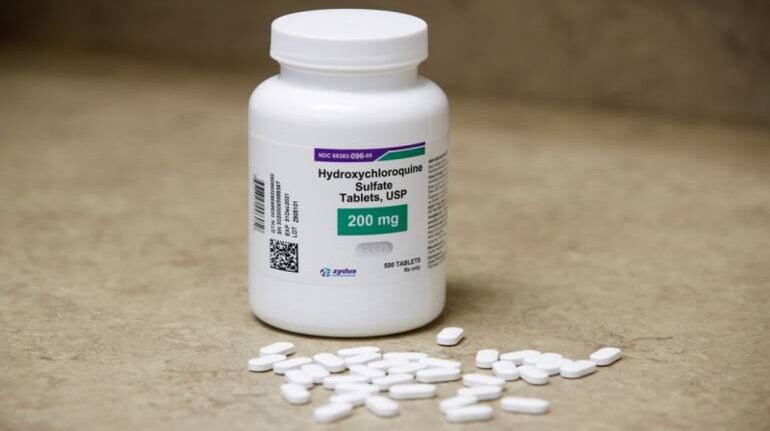



After conducting trials to determine the efficacy of hydroxychloroquine (HCQ) in reducing the risk of contracting COVID-19, the World Health Organization (WHO) decided to suspend the use of the drug. However, that has not altered the faith of the Indian Council of Medical Research (ICMR) in the anti-malarial drug.
A case-control study conducted by the research organization has revealed that the administration of the drug to healthcare workers, who have maximum exposure to the novel coronavirus, showed promising results.
For live updates on coronavirus, click here
The ICMR study suggested that taking HCQ in four or more “maintenance doses” resulted in a considerable decline in the chances of healthcare workers getting infected by the deadly pathogen.
The study, however, explains that “simply initiating HCQ prophylaxis” did not lessen the chances of contracting COVID-19 among healthcare workers; the results started showing only after the intake of four or more maintenance doses.
It states: “A significant reduction of about 80 per cent in the odds of COVID-19 infection in the HCWs was identified with the intake of six or more doses of HCQ prophylaxis. This dose-response relationship added strength to the study outcomes. Biologically, it appears plausible that HCQ prophylaxis, before the onset of infection, may inhibit the virus from gaining a foothold.”
A maintenance dose of 400 mg per week for seven weeks, following a loading dose of 400 mg, is suggested in India. If HCQ is taken in the prescribed pattern, results can be noticed from the fourth week onwards.
Data for the study was collected from May 8 to May 23 and the sample set included doctors, nurses, housekeeping staff, laboratory technicians, security guards, etc. The total sample size was 751, of which 378 cases were of symptomatic healthcare workers who tested COVID-19 positive, the rest were COVID-19 negative.
Unlike the Lancet Study that looks at the use of HCQ for treatment, the ICMR study focused on prevention of infections among healthcare workers. It concluded that the toxic side effects of HCQ were less likely among healthy persons undergoing prophylactic therapy.
The study further claims that “HCQ prophylaxis, before the onset of infection, may inhibit the virus from gaining a foothold”.
(With ANI inputs)
Discover the latest Business News, Sensex, and Nifty updates. Obtain Personal Finance insights, tax queries, and expert opinions on Moneycontrol or download the Moneycontrol App to stay updated!
Find the best of Al News in one place, specially curated for you every weekend.
Stay on top of the latest tech trends and biggest startup news.